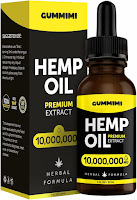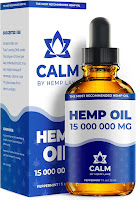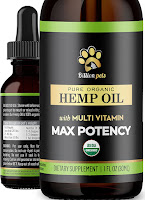I. Introduction to CBD
Explanation of what CBD is
CBD stands for cannabidiol, which is a natural substance found in the hemp plant. It is known for its potential health benefits and is commonly used in various products such as oils, gummies, and creams. Unlike THC, another compound found in hemp, CBD does not make you feel "high."
Brief history of CBD
CBD has been used for thousands of years, mainly for medicinal purposes. In ancient China, hemp was used to treat various ailments such as pain and inflammation. In the 19th century, Western medicine began to take an interest in the potential of hemp and cannabis-based medicines. In the 1940s, CBD was isolated as a compound and its chemical structure was identified. However, it wasn't until the 1960s that CBD began to be studied for its potential health benefits. In recent years, CBD has become more widely available and popular due to changes in laws and growing interest in natural health remedies.
Overview of the benefits of CBD
CBD is known for its potential health benefits, which include:
1. Pain relief: CBD may help reduce pain and inflammation.
2. Anxiety and depression: CBD may help alleviate symptoms of anxiety and depression.
3. Neuroprotective properties: CBD has been shown to have potential neuroprotective properties, which may be beneficial for conditions such as epilepsy and multiple sclerosis.
4. Anti-acne: CBD may help reduce inflammation and oil production, which can help improve acne-prone skin.
5. Cancer-related symptoms: CBD may help reduce symptoms related to cancer treatment, such as nausea and vomiting.
6. Heart health: CBD may have potential benefits for heart health by reducing blood pressure and potentially reducing the risk of heart disease.
7. Sleep: CBD may help improve sleep quality and reduce insomnia.
It's important to note that more research is needed to fully understand the potential benefits of CBD, and it's always a good idea to consult with a healthcare provider before using any new supplement.
II. Types of CBD Products
Explanation of the different types of CBD products (tinctures, capsules, topicals, edibles, etc.)
There are different types of CBD products available, and each type has its own unique way of being used. Here are some examples:
1. Tinctures: CBD tinctures are liquids that are taken orally by placing a few drops under the tongue. They are absorbed quickly and can be a convenient way to take CBD.
2. Capsules: CBD capsules are pills that are taken orally like any other medication. They are convenient and easy to use.
3. Topicals: CBD topicals are creams, lotions, or balms that are applied directly to the skin. They can be used to target specific areas of the body, such as sore muscles or joints.
4. Edibles: CBD edibles are food products that contain CBD, such as gummies or chocolates. They are a tasty and discreet way to take CBD.
5. Vaping: CBD can also be inhaled through a vaporizer, which heats the CBD oil and creates a vapor that is then inhaled into the lungs. This is a quick and effective way to take CBD, but it may not be suitable for everyone.
Each type of CBD product has its own unique benefits and drawbacks, and it's important to choose the type that is most suitable for your needs and preferences.
Pros and cons of each type of CBD product
1. Tinctures:
Pros:
- Fast-acting: CBD tinctures are absorbed quickly and can provide fast relief.
- Easy to use: Tinctures come with a dropper that makes it easy to measure and control your dosage.
- Versatile: Tinctures can be added to food or drinks, making them a convenient way to take CBD.
Cons:
- Taste: Some people may not like the taste of CBD tinctures, which can be bitter or earthy.
- Dosage: It can be difficult to measure the exact dosage when using a dropper, which may result in taking too much or too little.
2. Capsules:
Pros:
- Convenient: Capsules are easy to take and can be carried with you on the go.
- Precise dosage: Capsules come in pre-measured doses, making it easier to control your intake.
- No taste: Capsules are tasteless, which is ideal for those who don't like the taste of CBD.
Cons:
- Slow-acting: Capsules may take longer to take effect since they need to be digested and absorbed by the body.
- Limited dosage options: Capsules come in pre-measured doses, which may not be suitable for everyone's needs.
3. Topicals:
Pros:
- Targeted relief: Topicals can be applied directly to the area of pain or discomfort, providing localized relief.
- Non-invasive: Topicals are applied externally and do not require ingestion or inhalation.
- Variety of options: Topicals come in a variety of forms, such as creams, lotions, and balms.
Cons:
- May not be effective for all conditions: Topicals may not be effective for conditions that require systemic relief, such as anxiety or depression.
- Limited absorption: CBD topicals may have limited absorption through the skin, which may result in less potent effects.
4. Edibles:
Pros:
- Discreet: Edibles can be eaten like any other food, making them a discreet way to take CBD.
- Tasty: CBD edibles come in a variety of flavors, which can make them more enjoyable to consume.
- Easy to dose: Edibles come in pre-measured doses, which can make it easier to control your intake.
Cons:
- Slow-acting: Edibles may take longer to take effect since they need to be digested and absorbed by the body.
- Limited dosage options: Edibles come in pre-measured doses, which may not be suitable for everyone's needs.
- High calorie: Some CBD edibles may be high in sugar or calories, which may not be suitable for everyone's diet.
5. Vaping:
Pros:
- Fast-acting: Vaping CBD can provide fast relief since it is absorbed directly into the bloodstream.
- Customizable dosage: Vaping allows for more precise dosing, making it easier to control your intake.
- Variety of options: Vaping CBD comes in a variety of flavors and strengths.
Cons:
- Inhalation risks: Vaping may pose risks to lung health, especially with prolonged use.
- Equipment required: Vaping requires a vaporizer or other equipment, which may not be convenient for everyone.
- Potentially addictive: Vaping may be habit-forming and may lead to addiction.
Recommended dosages for each type of CBD product
The recommended dosage for CBD products varies based on factors such as body weight, metabolism, and the severity of the condition being treated. It's important to start with a low dose and gradually increase until the desired effects are achieved. Here are some general guidelines for the recommended dosages for each type of CBD product:
1. Tinctures:
- Start with 1-2 drops under the tongue and wait 30-60 seconds before swallowing.
- Increase the dosage gradually until the desired effects are achieved.
- The recommended daily dosage is 20-25mg.
2. Capsules:
- Start with one capsule and wait several hours before taking another.
- Increase the dosage gradually until the desired effects are achieved.
- The recommended daily dosage is 20-25mg.
3. Topicals:
- Apply a small amount of topical to the affected area and rub it in gently.
- Reapply as needed.
- There is no recommended daily dosage for topicals.
4. Edibles:
- Start with one piece of edible and wait several hours before taking another.
- Increase the dosage gradually until the desired effects are achieved.
- The recommended daily dosage is 20-25mg.
5. Vaping:
- Start with a low dose and increase gradually until the desired effects are achieved.
- The recommended daily dosage is 20-25mg.
It's important to note that these are general guidelines and the recommended dosage may vary based on individual factors. It's always a good idea to consult with a healthcare professional before starting to use CBD products, especially if you have any underlying medical conditions or are taking medication.
III. How CBD Works
How CBD interacts with the body's endocannabinoid system
CBD (cannabidiol) interacts with the body's endocannabinoid system by indirectly stimulating or blocking specific receptors, mainly CB1 and CB2, which are located throughout the body.
CB1 receptors are found mainly in the brain and nervous system and are responsible for regulating appetite, mood, pain, and memory. CBD interacts with CB1 receptors by inhibiting the enzyme that breaks down the endocannabinoid anandamide, which can increase levels of anandamide and potentially enhance its effects on CB1 receptors.
CB2 receptors are found mainly in the immune system and are responsible for regulating inflammation and immune response. CBD interacts with CB2 receptors by stimulating them, which can help to reduce inflammation and modulate the immune response.
CBD may also interact with other receptors, such as TRPV1 receptors, which are involved in regulating pain perception and body temperature, and serotonin receptors, which are involved in regulating mood and anxiety.
Overall, CBD's interaction with the endocannabinoid system can help to promote homeostasis, or balance, in the body and may have therapeutic benefits for a variety of conditions.
Benefits of CBD on the body and mind
CBD (cannabidiol) has been found to have several potential benefits for both the body and mind. Here are some of the most commonly reported benefits of CBD:
1. Pain relief: CBD may help to reduce pain by interacting with the endocannabinoid system, which is involved in regulating pain perception.
2. Anxiety and depression: CBD may have anxiolytic and antidepressant effects by interacting with serotonin receptors in the brain.
3. Inflammation: CBD may have anti-inflammatory effects by interacting with CB2 receptors in the immune system.
4. Epilepsy: CBD has been shown to reduce the frequency and severity of seizures in some people with epilepsy.
5. Neuroprotection: CBD may have neuroprotective effects, which means it could potentially help to protect the brain from damage.
6. Sleep: CBD may help to improve sleep by reducing anxiety and promoting relaxation.
7. Skincare: CBD may have anti-inflammatory and antioxidant effects, which could potentially benefit the skin.
Always remember that more research is needed to fully understand the potential benefits of CBD, and it's always a good idea to talk to a healthcare provider before trying any new supplements or treatments.
What are the CBD extraction methods
There are several methods used to extract CBD (cannabidiol) from the hemp plant. Here are the most common ones:
1. CO2 extraction: This method uses carbon dioxide (CO2) to extract CBD from the hemp plant. CO2 is pressurized and heated until it becomes a supercritical fluid, which can then be used to extract CBD. This method is considered safe and efficient, but it can be expensive.
2. Solvent extraction: This method uses a solvent, such as ethanol or butane, to extract CBD from the hemp plant. The solvent is then evaporated, leaving behind CBD oil. This method is less expensive than CO2 extraction, but it can leave behind traces of the solvent in the final product if not done correctly.
3. Olive oil extraction: This method involves heating the hemp plant in olive oil to extract CBD. The resulting mixture is then filtered to remove the plant material, leaving behind CBD-infused olive oil. This method is safe and can be done at home, but it's not as efficient as other methods and has a shorter shelf life.
4. Steam distillation: This method involves heating the hemp plant to release its essential oils, which are then collected and condensed into a CBD oil. This method is safe and efficient, but it can be expensive and requires specialized equipment.
Please be informed that different extraction methods can produce different types of CBD products, such as full-spectrum CBD, broad-spectrum CBD, or CBD isolate. It's always a good idea to research different extraction methods and CBD products before making a purchase.
IV. Choosing the Right CBD Product
Factors to consider when choosing a CBD product (potency, purity, source, etc.)
When choosing a CBD (cannabidiol) product, it's important to consider the following factors:
1. Potency: The potency of a CBD product refers to how much CBD it contains per serving. Higher potency products may be more effective for certain conditions, but they may also be more expensive.
2. Purity: The purity of a CBD product refers to how clean and free of contaminants it is. Look for products that have been tested by third-party labs for purity and quality.
3. Source: The source of a CBD product refers to where the hemp plant was grown and how it was cultivated. Look for products that are made from organically grown hemp and that have been sourced from reputable growers.
4. Extraction method: The extraction method used to create a CBD product can affect its potency and purity. Look for products that have been extracted using CO2 or ethanol, which are considered safe and efficient methods.
5. Type of CBD: There are different types of CBD products available, including full-spectrum, broad-spectrum, and CBD isolate. Full-spectrum products contain all of the cannabinoids and terpenes found in the hemp plant, while broad-spectrum products contain some, but not all, of these compounds. CBD isolate products contain only pure CBD.
6. Price: CBD products can vary widely in price, so it's important to consider the cost per serving when comparing products.
Overall, it's important to do your research and choose a CBD product that meets your individual needs and preferences. It's always a good idea to consult with a healthcare provider before starting any new supplements or treatments.
Tips for finding a reputable CBD supplier
When looking for a reputable CBD (cannabidiol) supplier, here are some tips to keep in mind:
1. Look for third-party lab testing: A reputable CBD supplier will have their products tested by an independent third-party lab to verify the potency and purity of their products. Make sure the lab test results are readily available and up-to-date.
2. Check the source of the hemp: Hemp plants can absorb toxins and contaminants from the soil, so it's important to choose a supplier that sources their hemp from reputable growers who use organic farming practices.
3. Read customer reviews: Check customer reviews and ratings of the supplier and their products on reputable websites or platforms. This can give you an idea of the quality and effectiveness of the products.
4. Consider the extraction method: Look for suppliers that use safe and efficient extraction methods such as CO2 or ethanol. Avoid suppliers that use potentially harmful solvents like butane or propane.
5. Check for FDA regulations: While CBD is not yet regulated by the FDA, reputable suppliers will comply with FDA guidelines for labeling and manufacturing practices.
6. Ask for recommendations: Ask friends or family members if they have any recommendations for reputable CBD suppliers. You can also ask your healthcare provider for recommendations.
Overall, it's important to do your research and choose a reputable CBD supplier that provides high-quality, safe, and effective products.
Why is third-party lab testing important?
Third-party lab testing is important for CBD (cannabidiol) products for several reasons:
1. Verifying potency: Third-party lab testing can verify the potency of a CBD product, meaning it can confirm how much CBD is present in the product. This is important because the amount of CBD can affect its effectiveness for treating specific conditions.
2. Ensuring purity: Third-party lab testing can also detect the presence of contaminants, such as pesticides, heavy metals, or residual solvents, which can be harmful to consumers. By verifying the purity of a CBD product, it ensures that it is safe for consumption.
3. Providing transparency: Third-party lab testing provides transparency and accountability for CBD manufacturers. Consumers can access the lab test results to ensure that the product they are purchasing is of high quality and contains the ingredients listed on the label.
4. Building trust: Third-party lab testing can help build trust between CBD manufacturers and consumers. It demonstrates that the manufacturer is committed to providing safe and effective products and is willing to invest in ensuring the quality of their products.
Overall, third-party lab testing is an important step in ensuring the quality and safety of CBD products, and consumers should look for products that have been tested by reputable labs.
V. Common Uses for CBD Products
Overview of the most common uses for CBD products (pain relief, anxiety, sleep, etc.)
CBD (cannabidiol) has been used for a variety of purposes, with some of the most common uses including:
1. Pain relief: CBD may help reduce pain and inflammation in conditions such as arthritis, multiple sclerosis, and chronic pain.
2. Anxiety and depression: CBD may help alleviate symptoms of anxiety and depression by interacting with serotonin receptors in the brain.
3. Sleep disorders: CBD may improve sleep quality and help reduce insomnia by promoting relaxation and reducing anxiety.
4. Epilepsy and seizures: CBD has been approved by the FDA for the treatment of certain types of epilepsy, including Dravet syndrome and Lennox-Gastaut syndrome.
5. Skin conditions: CBD may help alleviate symptoms of skin conditions such as acne, psoriasis, and eczema by reducing inflammation and regulating oil production.
6. Neurodegenerative disorders: CBD may have neuroprotective effects and may help reduce symptoms of neurodegenerative disorders such as Parkinson's disease and Alzheimer's disease.
It's important to note that while CBD may have potential benefits for these conditions, more research is needed to fully understand its effectiveness and safety for each use. It's always a good idea to consult with a healthcare provider before starting any new supplements or treatments.
Are there scientific studies and research on the effectiveness of CBD for various conditions?
There have been numerous scientific studies and research on the effectiveness of CBD (cannabidiol) for various conditions. Here are some examples:
1. Pain
relief: A 2020 review of 47 clinical trials found that CBD may be effective for
reducing chronic pain.
2. Anxiety
and depression: A 2019 study found that CBD may help reduce anxiety and improve
sleep in people with anxiety disorders.
Another study found that CBD may have
antidepressant effects.
3. Sleep
disorders: A 2019 study found that CBD may improve sleep quality and reduce
anxiety in people with insomnia.
4. Epilepsy
and seizures: The FDA has approved CBD-based medications, such as Epidiolex,
for the treatment of certain types of epilepsy.
5.
Neurodegenerative disorders: A 2019 study found that CBD may help reduce
symptoms of Parkinson's disease.
Another
study found that CBD may have neuroprotective effects in people with
Alzheimer's disease.
6. Skin
conditions: A 2019 study found that CBD may help reduce inflammation and
regulate oil production in people with acne.
It's important to note that while these studies show promise for the potential benefits of CBD, more research is needed to fully understand its effectiveness and safety for each use. It's always a good idea to consult with a healthcare provider before starting any new supplements or treatments.
Personal stories and testimonials from people who have used CBD products for various purposes
Dee - Tastes horrible but works
"The product tastes horrible but it works. I had headaches from muscle tightness for days. I used this at night before bed and felt better the next day. Great night of sleep as well. If they could fix the taste, it would be perfect."
"I was skeptical. But honestly this helps me relax. I tried gummies and everything. Honestly for me this works the best. I didn’t like the taste at first but overtime actually liked it. It’s kinda nutty flavored. I will quit trying other brands and dosage and stick to this wish it wasn’t so hit and miss with these products."
"It works great for pain. It’s fast acting. But I hate the taste."
VI. Potential Risks and Side Effects
CBD (Cannabidiol) is generally considered safe, but there are some potential risks and side effects to be aware of:
1. Dry mouth: CBD can decrease saliva production, which can lead to a dry mouth sensation.
2. Low blood pressure: CBD may cause a small drop in blood pressure in some people, which could result in lightheadedness or dizziness.
3. Drowsiness: CBD can have a calming effect and may make you feel sleepy or drowsy, especially in higher doses.
4. Changes in appetite: CBD can affect appetite, either increasing or decreasing it.
5. Interaction with other medications: CBD can interact with certain medications, including blood thinners and seizure medications.
6. Liver damage: In rare cases, high doses of CBD can cause liver damage.
It's important to talk to your doctor before starting any CBD regimen, especially if you have any medical conditions or are taking medications.
Warnings and Precautions
CBD (Cannabidiol) can interact with certain medications and may have specific risks for certain populations, such as pregnant women and children.
1. Drug interactions: CBD can interact with some medications, including blood thinners and seizure medications. If you are taking any medication, you should talk to your doctor before starting to use CBD.
2. Pregnant and breastfeeding women: There is not enough research on the safety of CBD use during pregnancy or breastfeeding. It is recommended that pregnant and breastfeeding women avoid using CBD products.
3. Children: CBD may have different effects on children than adults, and there is not enough research to determine its safety and effectiveness for children. Parents should talk to their child's doctor before giving them any CBD products.
4. People with liver problems: CBD is metabolized in the liver, and high doses can cause liver damage. If you have liver problems or are taking medication that affects your liver, you should talk to your doctor before using CBD.
It's important to talk to your doctor before using any CBD products, especially if you have any medical conditions or are taking medications. They can help you determine if CBD is safe and appropriate for you.
VII. Conclusion
CBD (cannabidiol) has shown potential as a natural health supplement for various conditions, including pain relief, anxiety, sleep disorders, and skin conditions. While more research is needed to fully understand its effectiveness and safety, CBD has gained popularity as a natural alternative to traditional treatments. It's important to note that CBD products are not a cure-all and should be used in conjunction with a healthy lifestyle and medical advice from a healthcare provider. Overall, CBD has the potential to offer a natural and holistic approach to supporting overall health and wellbeing.
Best cbd Supplements:

GummiMi Оrganic Hеmp Oil - Product Benefits: Immune Support
GummiMi Оrganic Hemp Oil - Product Benefits: Anti-Aging
Calming Chews for Dogs + Glucosamine for Dogs - Product Benefits: calming chews for dogs and cats - Hip Joint Supplement for Senior Dogs MSM, Turmeric to Improve Mobility & Energy - Pain Relief 120 Chews
Billion Pets - Hemp Oil for Dogs and Cats - Hemp Oil Drops with Omega Fatty Acids - Product Benefits: Hip and Joint Support and Skin Health; Relieves Anxiety and Stress - Pain relief.






Comments
Post a Comment